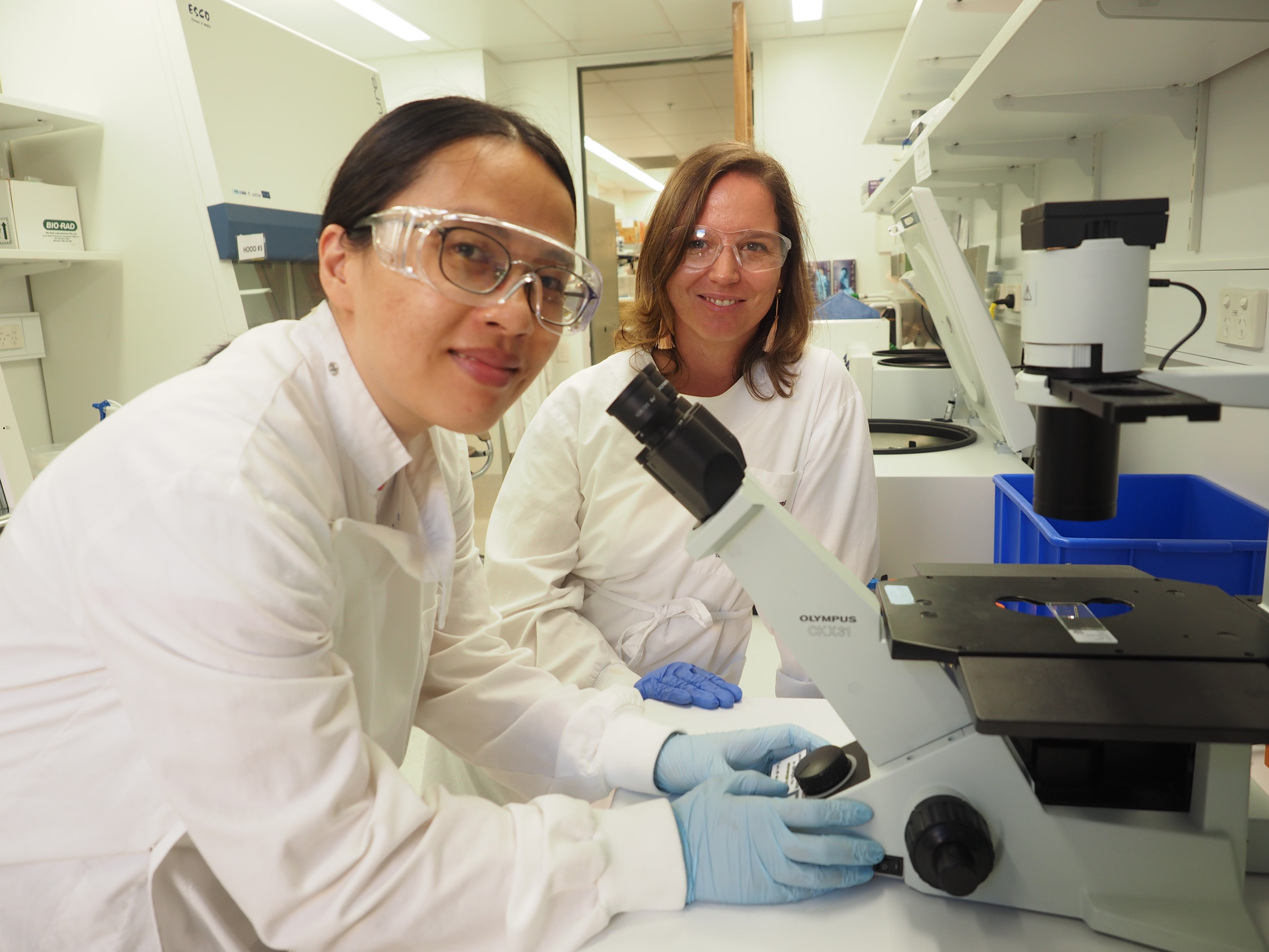Advancing cancer immunotherapies to save more lives: Meet The University of Queensland Diamantina Institute’s TRI-based cancer immunologist Dr Janin Chandra

This World Health Day’s theme is ‘our planet, our health’. The WHO is putting global attention on urgent actions needed to keep humans and the planet healthy and fostering a movement to create societies focused on wellbeing.
We interview leading The University of Queensland Diamantina Institute's TRI-based cancer immunologist Dr Janin Chandra, where she explains her groundbreaking research at TRI and how our health is intrinsically linked to and depends on the health of our planet.
- How do you see your vital immunology research as protecting and prioritising the health and wellbeing of societies?
Cancer accounts for close to 10 million deaths worldwide every year, and is up there with the leading cause of death globally. We understand now that the interplay between the immune system and the tumour determines patient outcomes, and that is very complex and diverse across different cancer types and across individuals. Advancing this knowledge to a very high detail is instrumental to identify new therapy targets and develop new approaches to treatment that can reduce the number of cancer-related deaths worldwide.
- Where is your current research at?
The advent of cancer immunotherapies, which involves unleashing a pre-existing, but suppressed immune response against the tumour, has revolutionised treatment and outcomes for a proportion of cancer patients. Currently, available immunotherapies target T cells, which can then mediate elimination of cancer cells. This works very well for patients whose immune system has previously recognised the tumour, but it doesn’t appear to work in patients where the tumour has not initiated an immune response.
We previously thought that immune suppression installed by the tumour is detrimental to outcome. However, my research in cervical and head and neck cancer has discovered that patients with high immune activity inside the tumour typically also have high levels of immune suppression, and paradoxically both are associated with better survival compared to those without tumour immune activity. We now understand that patients without any immune activity within the tumour are often those who don’t respond to T cell targeted immunotherapy, and represent a patient cohort of high unmet need for development of new approaches.
My research is trying to understand what drives such an initial tumour immune response, and what hinders it. I discovered key molecules that are implicated in the dysfunction of an immune cell that is positioned at the root of immune initiation, the so-called antigen-presenting cell. We are now developing new approaches to restore the function of these immune initiating cells within the tumour, hopefully leading to the launch of an immune cascade that enables tumour destruction.
- How do you feel your work is making a significant impact to global health?
Often, the health impact of basic discovery science is not easily tangible until decades later. History however lets us know that these basic discoveries are often essential in the development of revolutionary new medicines. My research is shaping a new understanding of what is needed in the development of the next generation of cancer immunotherapies. While these developments are ongoing and therefore haven’t produced health impact as ‘lives saved’, I am confident that the outcomes of my research are planting the necessary seeds for this prospective impact in the future.
- World Health Day is also putting a spotlight on how the climate crisis is a health crisis. How do you feel your translational research is contributing to breaking the destructive health impacts fuelled by climate change?
I am a strong advocate for planetary health. Our health is intrinsically linked to and depends on the health of our planet. Many cancers occur as a consequence of exposure to particular elements of our world. These can be radiation, viruses or chemicals.
As a cancer immunologist, I don’t only shed light on the mechanisms that initiate cancer, but I also raise awareness of the interplay between humans and nature that can lead to cancer. This awareness can empower people to prevent themselves from exposure to cancer promoting elements. As scientists, we have a responsibility to share our knowledge of how an imbalance to our natural systems will directly translate into human disease, and to let people know that by protecting our planet we are ultimately protecting ourselves.
On the flipside, research aimed to resolve the big global health challenges such as cancer will ultimately release human capacity to tackle the consequences of climate change, which requires focus, commitment, and well-being.
- What drives you in your research?
I was always fascinated by the complexities of the natural world, especially the human body, and how it heals and defends itself against environmental elements. My work as a scientist is like an endless detective game with intriguing details and layers of intertwined mechanisms. Working in the medical research field is especially rewarding as my work has the potential to make a difference in many people’s lives.
- What do you hope to achieve next in your research?
Current T cell targeted immunotherapies benefit, depending on cancer type, approximately 20% of cancer patients. This means that a large proportion of patients remain resistant to current treatments and are in urgent need of alternatives.
My research focusses specifically on this resistant patient cohort. I hope that the treatments that my team and I are currently developing, that target immune initiating pathways as a root cause of therapy resistance, will translate into products with improved efficacy, and eventually save lives.
%20Janin%20chandra.jpg)
The University of Queensland Diamantina Institute's TRI-based cancer immunologist Dr Janin Chandra in her lab.







